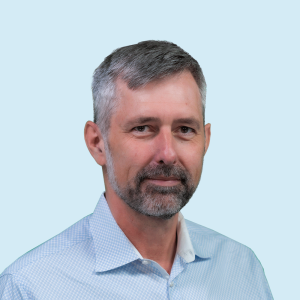European Money Quiz: financial education with a side of fun and competition

How can we motivate young people to spend more time thinking about financial subjects and their own money? The European Money Quiz (EMQ) is one playful, action-packed option. It is an integral part of the European Money Week (EMW) and definitely one of the highlights. The EMW takes place across Europe between 18 and 22 March. The week features many different events and other activities designed to raise young people’s awareness of financial subjects and increase their economic skill set.
Awareness of the importance of financial education is increasing
Financial literacy is decisive, particular in order to empower younger people to make sound financial decisions, plan their financial future and protect themselves from economic risks. Society has become more and more aware of this over the past few years. A much-studied subject, which these days is rarely disputed, is that increased financial competence generally leads to better decision-making skills, has a positive effect on a person’s savings and investments and therefore also a positive effect on a person’s long-term financial stability and their success in generating wealth.
Governments are also increasingly aware of the importance of financial education. On a national level here in Germany, this is evidenced by the “Financial Literacy Initiative” started by the Federal Ministry of Finance (BMF) and Federal Ministry of Education and Research (BMBF). But the issue is also gaining more attention on the European stage. For example, the EU’s Economic and Financial Affairs Ministers also addressed the subject of improving general financial literacy at their informal meeting in February, specifically discussing retail investors’ access to information, options for comparing products and attractive cross-border EU savings schemes. Almost simultaneously, the European Commission organised a high-level conference on financial literacy, followed by an academic conference on financial literacy research the next day. We have also seen the introduction of a European financial competence framework for adults and a financial competence framework for children and youth developed jointly by the European Commission and the OECD.
However, defining educational content and developing financial education strategies is one thing, actually providing young people with the financial literacy tools they need is another. Especially considering that the amount of financial education provided in schools in Germany is still largely inadequate.
European Money Week – what is it?
The European Money Week, taking place for the tenth time this year, cannot completely close these gaps in financial education, but the goal is to get youth all over Europe excited to learn more about finances. And it’s working!
The week is organised by national banking associations and the European Banking Federation (EBF), with hundreds of events focusing on financial literacy taking place across the EU and beyond. On 19 March, the EBF hosted an opening event both online and in Brussels, featuring interesting panels on the current state of financial competency in Europe, on financial education in the era of digitalisation and on new types of financial fraud that make use of artificial intelligence. The many diverse activities during the whole week range from lessons in the classroom to seminars and conferences and of course the European Money Quiz, managed and implemented in Germany by the Association of German Banks.
The European Money Quiz: a playful way to learn financial literacy
The European Money Quiz is a European-wide competition taking place for the seventh time this year. It is aimed at students aged between 13 and 15 (years 8-10) who want to test their knowledge of financial and monetary issues. The preliminary German rounds started with 500 students competing to qualify for the European final in April. Over 100,000 students from 28 European countries took part overall.
The competition takes place on the internet platform Kahoot. Kahoot is a free, game-based learning platform that is designed for teachers to use during their lessons. The quiz questions are shown on a large screen, such as an interactive whiteboard or projector, but the players enter their answers using their smartphones. This means that the quiz is a social event that promotes team spirit and encourages a class to work together.
Not everyone can win the competition, but the competition is a win for everyone: it’s great fun, great experience and a great way to gain more financial literacy! There is no need to stress out about extremely difficult questions. Anyone who wants to know what sort of questions are asked or prepare for the competition can find plenty of educational materials and practice quizzes on the Association’s website.
The winners from Paderborn will travel to the European finals in Brussels
The winning German team for 2024 has already been chosen: first place went to Christopher Herting’s team from Gymnasium Schloss Neuhaus in Paderborn. And prizes also went to the teams from Rainer-Maria-Rilke-Gymnasium in Icking and Gabrieli-Gymnasium Eichstätt. Congratulations to all the winners! All three teams received prize money that is awarded as funding for their school.
But that’s not all: the winning team gets to travel to Brussels with two young adults and one adult chaperone. They will take part in the European finals on 18 and 19 April. The students at the competition in Brussels compete in teams of two, playing the quiz in their country’s official language. The 2024 champions will be the team that gets the most correct answers in the shortest amount of time. But here, too, the three best teams will receive prize money donated to their schools.
In addition to the competition, the Money Quiz is part of an interesting two-day event in Brussels. Students do not just get the opportunity to spend plenty of time talking to participants from other European countries, they also have the chance to get to know Brussels, the ‘capital city’ of Europe and headquarters of many EU Institutions.
Not just in Europe: the OECD’s Global Money Week
The European Money Week is part of the OECD’s Global Money Week (GMW), taking place at the same time. Youth from over 100 countries take part in this yearly campaign, which reaches up to one million young people across the globe each year. GMW Germany is sponsored by the Federal Ministry of Finance.
The GMW shares its goals with the European Money Week: make a contribution to ensuring that children and young people get an early start on learning the necessary knowledge, skills and attitudes they need to make well-founded financial decisions. This year’s motto, “Protect your money, secure your future,” sums up the current focus of the Global Money Week: educating young people on how to manage money safely and raise their awareness of potential financial risks. This includes risks such as phishing or online shopping scams, as well as misuse of data and identity theft. The more young people who are aware of these risks, the smaller the risk that they will fall victim to these scams.
How the Association of German Banks works to improve financial literacy
Participating in the European and Global Money Week is just one of many initiatives that the Association of German Banks uses to improve financial literacy among young people. We support many initiatives designed to integrate financial education into school curriculums. The association supports teachers with analogue and digital materials that help them to teach financial topics and economics simply and factually in lessons. In addition, we also provide employees of our member banks with corresponding, didactically tested offers accompanies by pedagogical guidelines, which they can use to impart concrete and practical financial knowledge in schools.
The association also hosts the SCHULBANKER banking simulation game, where young people get to simulate managing a bank and learn about the background to commercial financial decisions as well as the basic functions of our economy. These competitions reach around 3,000 students annually, and since the competitions began, more than 95,000 young people from Germany and German-speaking schools in Europe.

Contact
Christian Jung
Digital Contents and Channels

